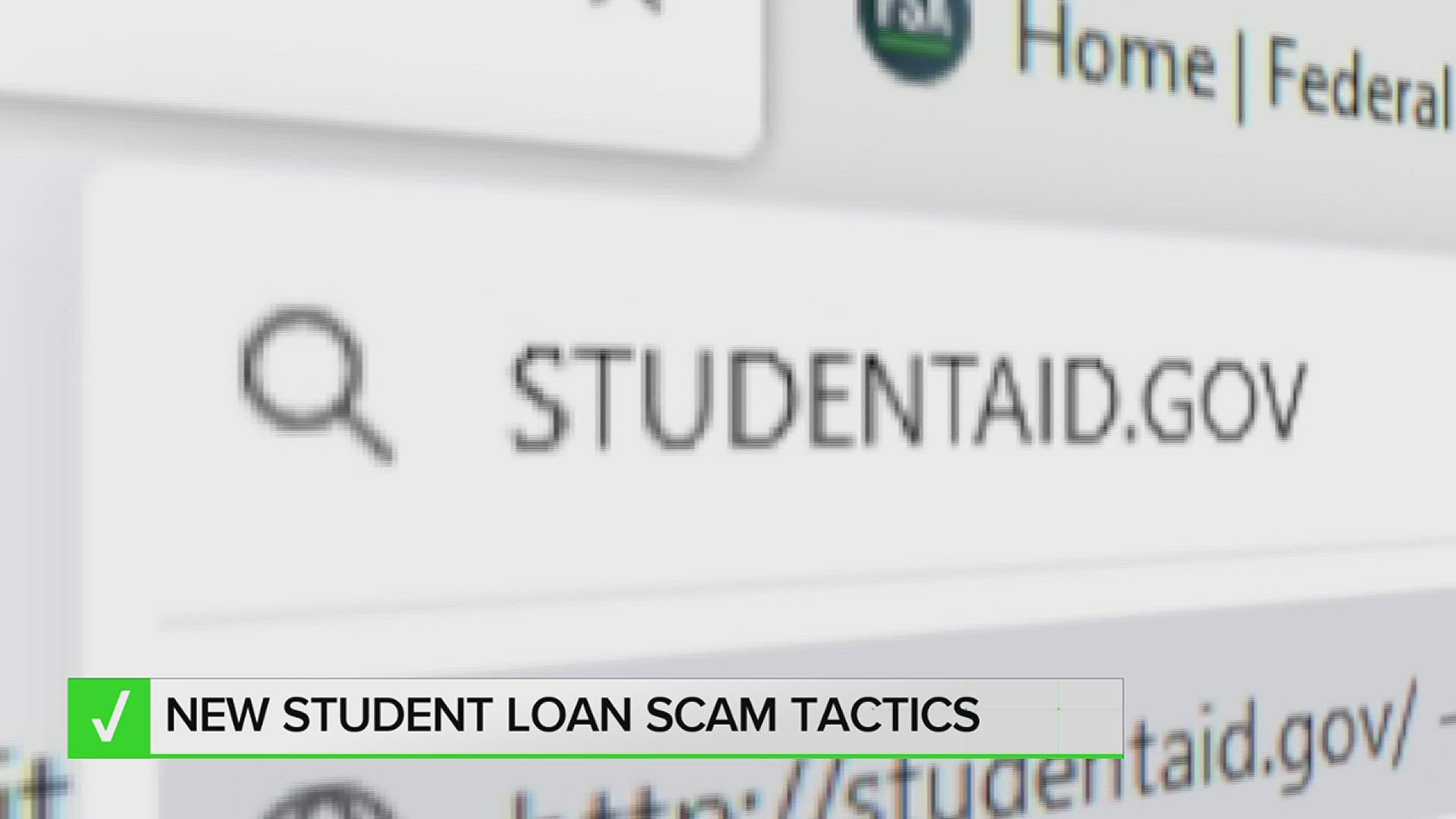PENNSYLVANIA, USA — It’s been nearly two weeks since the Biden Administration’s soft launch of the student loan cancellation program, with more than half of the 40 million Americans eligible for student loan forgiveness applying.
While the plan is an amazing opportunity for many borrowers, it’s also an opportunity for scammers.
New claims say that scammers are using a new tactic by already having some of your information on hand.
THE QUESTION
Are reports that scammers are providing personal information true?
THE SOURCES
Better Business Bureau and the Department of Education.
WHAT WE FOUND
A recent release from the BBB says recent scam tracker reports claim such – with multiple people reporting unsolicited callers revealing their own personal information to them.
One report says a caller, quote "not only had my email address but also the name of the school I attended and the last 4 digits of my social security number."
Another victim reported she misled scammers on the amount she owed but was corrected. She then did the same with her social security number, which the scammer again corrected.
Other reports indicated that scammers knew their FAFSA account info.
So yes, reports of a new loan forgiveness scam where the caller has your information are true.
Just this week, the Department of Education Inspector General’s office released a PSA regarding scams reminding borrowers to quote “stay alert and avoid falling victim to student loan forgiveness and debt relief scams.”
While the BBB did not specify where scammers get personal information, there are practical ways to protect yourself from these scams.
The Department of Education says be cautious of unsolicited phone calls, emails, texts, or social media messages from anyone claiming that they can help you obtain student loan forgiveness.
They also say you shouldn’t share your Federal Student Aid ID or information, even if callers claim to be with your institution or loan provider.
And be aware of phishy emails with links or attachments that may often look similar to legitimate ones.

